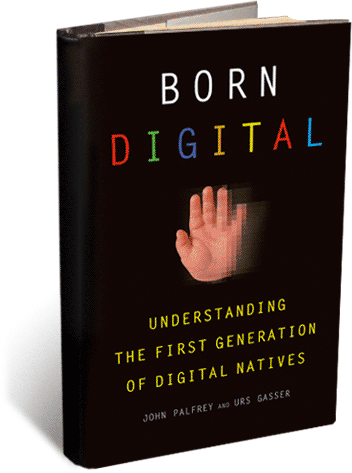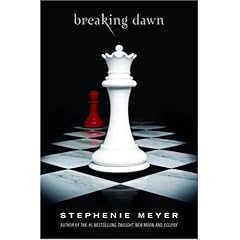As a woman, I’m offended by John McCain’s decision to select Alaska Governor Sarah Palin as his running mate. It is clear that the decision is primarily driven by politics, by the belief that to get Hillary’s supporters, all you need to do is play the gender card.
I respect what Palin has done in Alaska in terms of calling out corrupt politics, and I’m sure that McCain does too. But being a whistleblower and working towards a clean state government are not qualifications for the (vice) presidency, especially not in times like these. We need whistleblowers and we need people who will work to clean up the government, but we need so much more than that.
McCain is not a young man. The most important quality in a vice president is their ability to be the president should something happen. It’s one thing to say that Obama is not ready because he hasn’t spent enough time in Washington, but he has worked on issues at many levels and he is very well connected globally and engaged in global political issues. There’s nothing that indicates that the same is true of Palin.
Palin is the Governor of a state with severe economic issues. What has she done? She played protectionist politics to keep a dairy company in business when it was clear that they couldn’t compete and they still failed. Trying to protect failed business plans is not the path towards economic growth. Her current plan, although not yet implemented (thank god), is to destroy the environment and put at risk future generations for economic prosperity today.
As a woman, I’m offended. Women have long borne the responsibility to protect the environment and future generations. How can she turn her back on this to reap short-term political and economic rewards?
Palin marks her identity by noting that she’s just a soccer mom. She is respected politically for questioning powers that be. She is respected by evangelicals for not aborting her son after learning that he would have Down Syndrome.
As a woman, I’m offended. Palin has the right to choose what she does with her body, and I respect her decision, but I also demand the right to make my own choices. Feminism isn’t about aborting – feminism is about the right to choose and make decisions about our bodies based on what is best for everyone involved in the social context in which we live. A woman’s personal choice alone does not make her eligible for presidency.
I voted for Barack, but I deeply respect Hillary. I am in awe of the work she has done and that she continues to do. In 1992, I would’ve (could I have) voted for her in a second over Bill. 2008 is different and I think that Barack is bringing to the table something far more important. My choice of Barack is not a diss on Hillary. For the first time in my life, I made a choice about who to vote FOR not who to vote against.
Palin is not Hillary. Palin lacks the experience, the connections, the political stature, and, most importantly, the deep respect for women and women’s issues that Hillary has.
As a woman, I’m offended. I’m offended that McCain is choosing a woman who is clearly ill-equipped to be the president of this country in an effort to woo over Hillary’s supporters. I’m offended because McCain’s decision is one of the most misogynist ones I’ve seen in recent history. Does he honestly believe that women in this country are so stupid as to believe that any woman is a substitute for another woman? That all that us women boil down to is our XX chromosomes and estrogen? C’mon now.
Don’t get me wrong – I want to see women in the highest positions of power in this country. But I don’t just want any woman. I want women in power who have earned the respect and worked to achieve said power. I want women who are chosen because of what they have done, not how they look in a political power game.
I was expecting McCain to choose a woman. I figured that’s why he waited this long. I was expecting him to go outside of the DC circuit and my latest musing was that he’d choose Meg Whitman. Sure, she’d be controversial as hell, but damn is she a professional power house. And, unlike Palin, she actually knows something about economics. Her experience as CEO of a major international company has given her tremendous experience that would complement McCain tremendously. She’s financially self-sustaining and appealing to the economic conservatives that the Republican party lost under Bush. Sure, she’s controversial and I’d hate to see that kind of corporate-ness inside the White House, but she’s beyond qualified and capable. Palin is an entirely different picture. She appeals to the social conservatives because of her personal views, but she lacks anything resembling the qualifications to be president.
As a woman, I’m offended.
I wasn’t going to vote for McCain before, but I had at least respected him and what he’s done for this country. He’s completely lost any ounce of respect in my mind. His decision to choose a vice president based solely on her gender is absolutely antithetical to every value I hold dear. Our sisters, mothers, and grandmothers did not fight for women’s rights only to have a woman toted around as an accessory in federal politics. I am confident that Palin is a smart, compassionate, and capable person, but she lacks the qualifications, experience, and long-term thinking to be president. This isn’t about DC. She hasn’t even done anything worth mentioning in Alaska. For McCain to tap her for this position is just outright offensive.
On the anniversary of women’s right to vote in this country, Hillary asked the crowd if they voted for her or for the people that she’s trying to serve. In asking the audience to vote for Barack, she asked them to move beyond individualist-politics and focus on the issues at hand. My hope is that women everywhere took that message to heart. This isn’t about getting a woman into the White House. It’s about creating a future that we want to live in.

